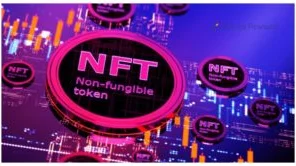NFTs are crucial to the Metaverse
Metaverse’s economy will be based on digital assets, including NFTs. Unique assets known as NFTs are kept on a blockchain like Ethereum, Polygon, or Solana.
•
July 26, 2022

Metaverse’s economy will be based on digital assets, including NFTs. Unique assets known as NFTs are kept on a blockchain like Ethereum, Polygon, or Solana. They act as verifiable deeds to real estate that only exists online. They may be moved across applications thanks to their storage on a public blockchain, which offers security and validity.
NFTs can be collectibles or branded things (such as shoes or purses) outside of gaming; even songs can be minted and sold as NFTs. As NFTs become more popular, they will be utilized as access passes for sporting events, clubs, and other venues, as well as for digital experiences. Some brands additionally provide "member" perks to customers who use their NFTs (for example, for preferred access to future products and experiences).
Notably, NFTs let players to keep complete control of their digital assets (skins, handbags, weapons, and so on), allowing them to freely trade NFTs with other players in the same publisher universe, sell them for real money, and eventually use them across various blockchains.
Smart contracts will be used to monetize NFTs in many circumstances. These are programs that are stored on a blockchain and run when certain circumstances are satisfied. So, if one condition is met, another action is carried out automatically. For example, an artist using NFT smart contracts can sell a piece to a collector while receiving a royalty portion on all later resales. Investors can buy a piece of a song from an artist. These investors will be paid every time the song is played on a streaming service via a smart contract.
Related

AI Prompt Writing: The Basics for Professional Accountants
From automating routine tasks to supporting advanced analysis and advisory services, AI tools are becoming an everyday reality for professional accountants—especially those working in small- and ...
Read more
The Future of Accounting and Tax: How AI, Automation, and Regulation Are Reshaping the Profession (2025–2026)
Introduction The accounting and tax profession is undergoing one of the most significant transformations in its history. Artificial intelligence, automation, evolving regulatory frameworks, an...
Read more